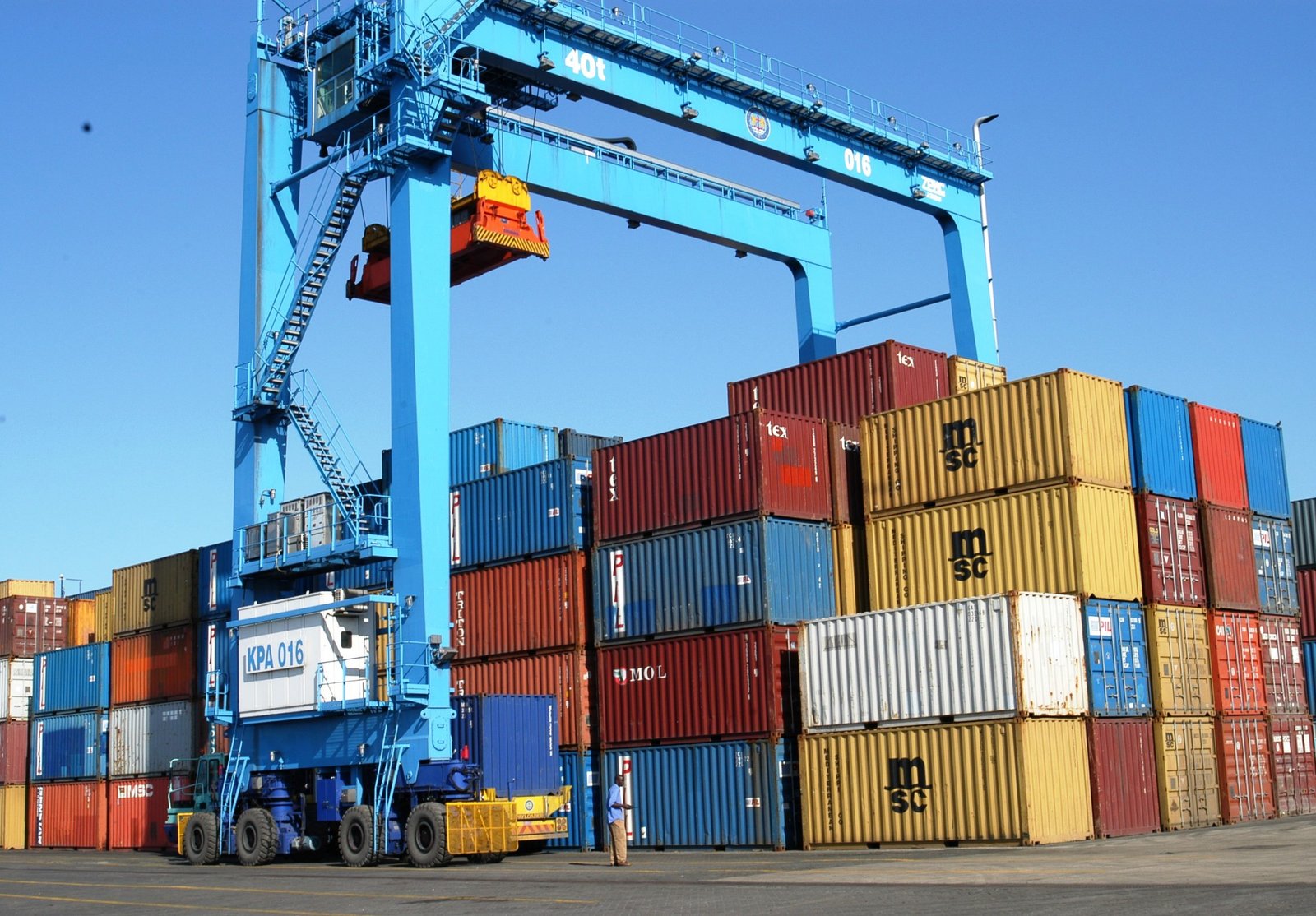Kenya’s imports have experienced a notable decline of almost 14% during the initial eight months of this year. This downturn underscores the significant impact of the weakening Kenyan shilling on the nation’s purchasing power.
The Kenyan shilling has witnessed a substantial depreciation of 17% against the US dollar. This depreciation has made imports more expensive, given that they are primarily financed through the purchase of US dollars within the local market. This depreciation has also contributed to the rising inflation levels witnessed this year.
The Central Bank of Kenya (CBK) recently released trade data, revealing a clear picture of the country’s import situation. According to this data, Kenya’s imports for the period totaled $11.45 billion (Sh1.7 trillion), representing a 13.8% decline compared to $13.28 billion (Sh1.97 trillion) for the same period in 2022.
Notably, nearly all major product categories reported decreased imports, with the exception of food and live animals, which experienced a 28.3% increase, reaching $1.71 billion (Sh254 billion).
The most substantial decline in imports was witnessed in the category of manufactured goods, which fell by 27.3% to $1.81 billion (Sh269 billion), down from $2.49 billion (Sh370 billion) in the previous year.
During a Monetary Policy Committee briefing, CBK Governor Kamau Thugge explained, “Typically, currency depreciation stimulates exports and increases the cost of imports, effectively reducing the demand for foreign exchange and lessening the pressure on the exchange rate to depreciate. This is one of the contributing factors. There are additional factors, such as a reduction in the import of machinery and equipment, reflecting the completion of government projects.”
Other categories experiencing notable import declines include mineral fuels and lubricants (down by 19.9%), animal and vegetable oils (down by 20.9%), machinery and transport equipment (down by 18.9%), and chemicals (down by 14.3%).
The consequences of the expensive US dollar are being felt across various sectors. In the automotive industry, both dealers and assemblers have raised prices to compensate for higher expenses and safeguard profit margins. Manufacturers importing raw materials have also adjusted their prices to maintain margins against rising costs, resulting in an increase in the prices of locally manufactured goods.
Despite expectations of a significant boost in exports due to the weaker shilling, the reality has been less pronounced. Total export earnings during the first eight months of the year declined by 2.2% to $4.92 billion (Sh731 billion). This decline was evident in various sectors, including tea, coffee, horticulture, beverages, tobacco, cooking oils, and apparel.
The future trajectory of Kenya’s import-export dynamics will be closely monitored as the nation navigates currency fluctuations and their economic implications.
Photo Source: Google
By: Montel Kamau
Serrari Financial Analyst
7th October, 2023
Article, Financial and News Disclaimer
The Value of a Financial Advisor
While this article offers valuable insights, it is essential to recognize that personal finance can be highly complex and unique to each individual. A financial advisor provides professional expertise and personalized guidance to help you make well-informed decisions tailored to your specific circumstances and goals.
Beyond offering knowledge, a financial advisor serves as a trusted partner to help you stay disciplined, avoid common pitfalls, and remain focused on your long-term objectives. Their perspective and experience can complement your own efforts, enhancing your financial well-being and ensuring a more confident approach to managing your finances.
Disclaimer: This article is for informational purposes only and does not constitute financial advice. Readers are encouraged to consult a licensed financial advisor to obtain guidance specific to their financial situation.
Article and News Disclaimer
The information provided on www.serrarigroup.com is for general informational purposes only. While we strive to keep the information up to date and accurate, we make no representations or warranties of any kind, express or implied, about the completeness, accuracy, reliability, suitability, or availability with respect to the website or the information, products, services, or related graphics contained on the website for any purpose. Any reliance you place on such information is therefore strictly at your own risk.
www.serrarigroup.com is not responsible for any errors or omissions, or for the results obtained from the use of this information. All information on the website is provided on an as-is basis, with no guarantee of completeness, accuracy, timeliness, or of the results obtained from the use of this information, and without warranty of any kind, express or implied, including but not limited to warranties of performance, merchantability, and fitness for a particular purpose.
In no event will www.serrarigroup.com be liable to you or anyone else for any decision made or action taken in reliance on the information provided on the website or for any consequential, special, or similar damages, even if advised of the possibility of such damages.
The articles, news, and information presented on www.serrarigroup.com reflect the opinions of the respective authors and contributors and do not necessarily represent the views of the website or its management. Any views or opinions expressed are solely those of the individual authors and do not represent the website's views or opinions as a whole.
The content on www.serrarigroup.com may include links to external websites, which are provided for convenience and informational purposes only. We have no control over the nature, content, and availability of those sites. The inclusion of any links does not necessarily imply a recommendation or endorsement of the views expressed within them.
Every effort is made to keep the website up and running smoothly. However, www.serrarigroup.com takes no responsibility for, and will not be liable for, the website being temporarily unavailable due to technical issues beyond our control.
Please note that laws, regulations, and information can change rapidly, and we advise you to conduct further research and seek professional advice when necessary.
By using www.serrarigroup.com, you agree to this disclaimer and its terms. If you do not agree with this disclaimer, please do not use the website.
www.serrarigroup.com, reserves the right to update, modify, or remove any part of this disclaimer without prior notice. It is your responsibility to review this disclaimer periodically for changes.
Serrari Group 2025
















